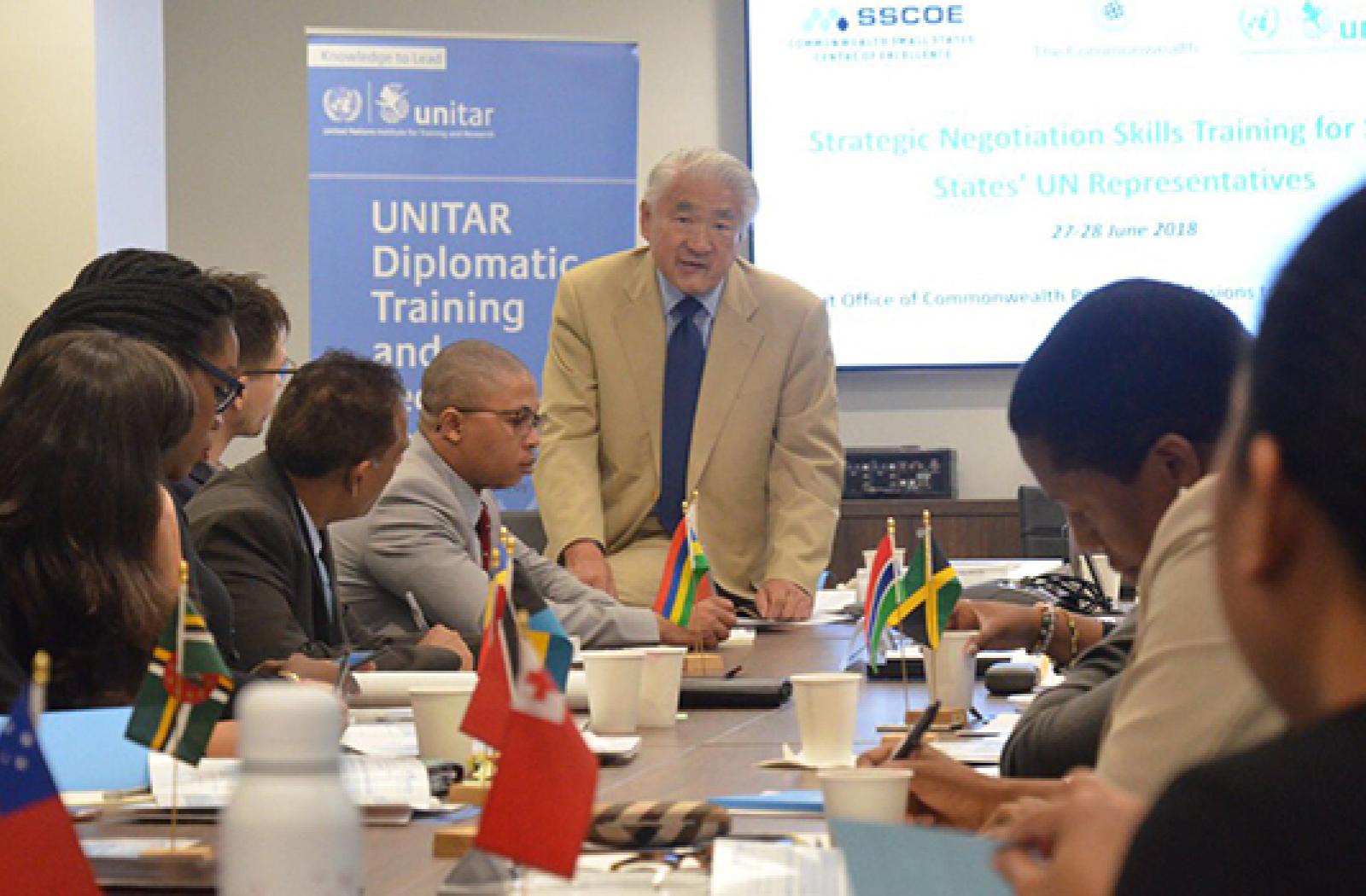Officials from Commonwealth small states have completed a specially-designed course to strengthen their negotiation skills in international decision-making forums.

Officials from Commonwealth small states have completed a specially-designed course to strengthen their negotiation skills in international decision-making forums.
The two-day training was the first such activity delivered by the Commonwealth Small States Centre of Excellence and the United Nations Institute for Training and Research.
Travis Mitchell, Head of Economic Policy and Small States at the Commonwealth, said the course would help officials navigate UN processes that can significantly impact their countries’ development goals. Small states are disproportionately affected by natural disasters due to their size, location and exposure. They must find solutions that suit their distinct needs and maximise their limited resources. The new training ensured that officials, who are at the front of negotiations, are well equipped to form coalitions and move ahead.
“They will be better prepared to stand together and engage effectively,” he said. The training offered strategies that could lead to international action such as providing special assistance to small states ahead of the upcoming hurricane season in the Caribbean.
Last year during the hurricane season, the infrastructure and economic activity in a number of Caribbean nations was devastated. Barbuda lost almost all of its infrastructure and Dominica’s gross domestic product was wiped out.
Strategic Negotiation Skills Training for Small States was designed by experts from Yale and Columbia universities and aimed to broaden understanding of the challenges that influence small states’ ability to protect their national interests.
Attendees included senior officials from Commonwealth small states, including permanent representatives to the UN. They learned how to prepare themselves mentally and administratively in multilateral meetings and identified the tactics most likely to bring forth desired outcomes.
Speaking during the session, the Permanent Representative of Trinidad and Tobago to the UN, Pennelope Beckles, gave an example relevant to her region, saying: “Being blacklisted, or referred to as tax haven, is a big challenge for small states. It means that it is very difficult to understand the complexity of issues that are involved in having yourself removed when you are blacklisted.”
Pennelope and Adi interview
“This training will also cause us to raise that small states require assistance in this area. It is ensuring that member states at the UN are knowledgeable and consequences that small states face when they are blacklisted,” she added.
Officials agree their countries could obtain better results from the negotiating process if they followed a unified approach to define their key issues reasonably and consistently with a clear vision and outcome.
Experts led discussions on how to draft a resolution, deal with instable priorities with changing governments, form consensus on the key issues of small states and use of bargaining powers.
The training adds to the Commonwealth’s longstanding work to ensure the voices of small states are heard in international discourse.
Marco and Arianne interview



